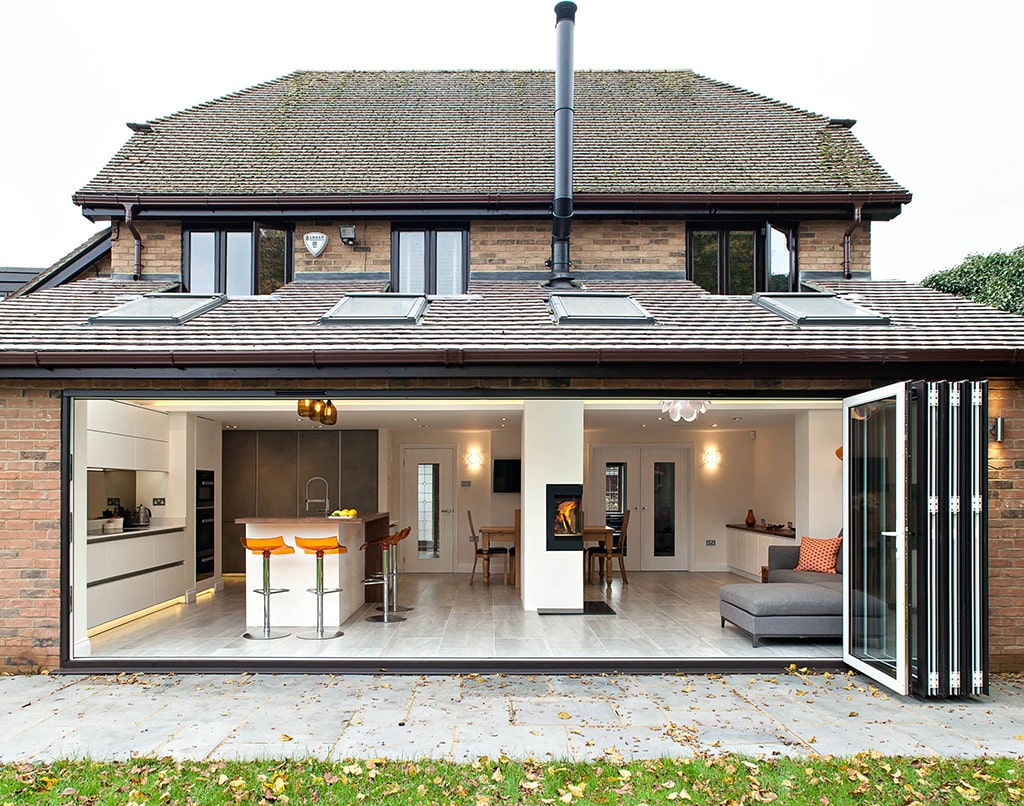
In North London, there’s more than just spring in the air! Home renovation fever is giving people a new lease of life! They’re shaking off their winter blues and making good on their plans for a home extension…
Building an extension – where to start?
The team at Combit Constructions, specialist builders in North London, understands that a home extension might seem a bit daunting. That’s why we’ve taken the time to list out these 8 things about building an extension before you start getting your hands dirty:
1. HAVE A CLEAR VISION
It’s super important to have a clear vision of what you want to achieve with your home extension. Do you need:
- More bedrooms
- Extra living space
- A new kitchen
- A home office/study
Or a combination of a few of the above?
Identifying exactly what your home lacks is step 1. A clear goal allows you to plan methodically and helps to focus your plans on what your household needs, rather than trying to juggle too many ideas.
2. INVOLVE THE EXPERTS
Involving the experts from the get-go could save you a lot of stress and unnecessary headache. A specialist renovation team such as Combit Constructions has years of experience and can help you design and build house extensions, North London, that are 100% successful.
Designing is no job for a novice: using an architect to draw up your plans might cost a few extra pounds, but it’ll be worth every penny. The professionals can help you get the best return on your investment by maximizing the functionality of your home and putting every inch of space to good use.
Connecting the old and the new parts of the home also requires skill and experience. Talk to your professional team about how to create that perfect home harmony between your existing property and your proposed extension.
3. DO YOU NEED PLANNING PERMISSION?
The size and nature of your proposed home extension will be the biggest determining factors when it comes to planning permission.
Many simple loft or garage conversions don’t need a permit, but if you’re planning on changing the footprint of the home, you’ll need to find out what paperwork is involved.
Talk to your local authorities or your chosen renovation team about what your project will require. Getting permits can take time, so where possible, lodge your requests as far in advance as you can.
4. HOW WILL YOUR PLANS IMPACT ON YOUR NEIGHBOURS?
In the UK, the Party Wall Act allows you to carry out work up to your neighbors’ land. If your extension involves digging foundations within 3m of the party wall, boundary, or party wall structure you will be required to comply with regulations set out in the Party Wall Act.
Top Tip: if possible, get your neighbors on side before you begin your home extension – a friendly chat to explain what you are going to do and why might go a long way towards maintaining a good relationship once the noise and mess starts!
5. FACTOR IN A CONTINGENCY AMOUNT
Building an extension on a house is a different ballgame to starting from scratch with a new build. When you’re working with an existing building, you’re bound to come up against challenges that you didn’t expect, and that’s why we recommend factoring in a contingency amount for unexpected costs.
Somewhere between 10 – 20% is a good amount to allow.
6. ELECTRICITY AND PLUMBING
Getting services to the new part of your home requires forethought and planning. Talk to your renovation team about whether you can tap into your current electricity and plumbing plans or whether you’ll need to run new lines.
Will your current hot water unit cope with the extra demands? Or will you need to upgrade your current unit or add a new one?
7. WILL YOU BE ABLE TO LIVE ON SITE?
It’s no secret that home extensions don’t happen overnight, and they come with their fair share of mess and stress.
If your alterations are going to involve disrupting a lot of the house, you may wish to move out for part or all of the duration. If you’re unsure what to do, talk to your renovation team about each stage of the build and what will be involved.
8. MAKE SURE YOU OPT FOR EFFICIENCY
Nowadays, energy efficiency is a big thing, and energy-efficient homes are on the top of buyer’s bucket lists.
Double glazed windows, good insulation, rainwater tanks and solar energy are a few things you might want to include in your extension plans.
As a homeowner, it’s your responsibility to minimize your impact on the environment, and many of these systems help to reduce your overhead running costs too!
For more tips on building home extensions, North London, contact the team at Combit Constructions today. We specialize in crafting beautiful, functional homes in North London and we’ve got the skill, expertise and experience to turn your extension dreams into realities!

